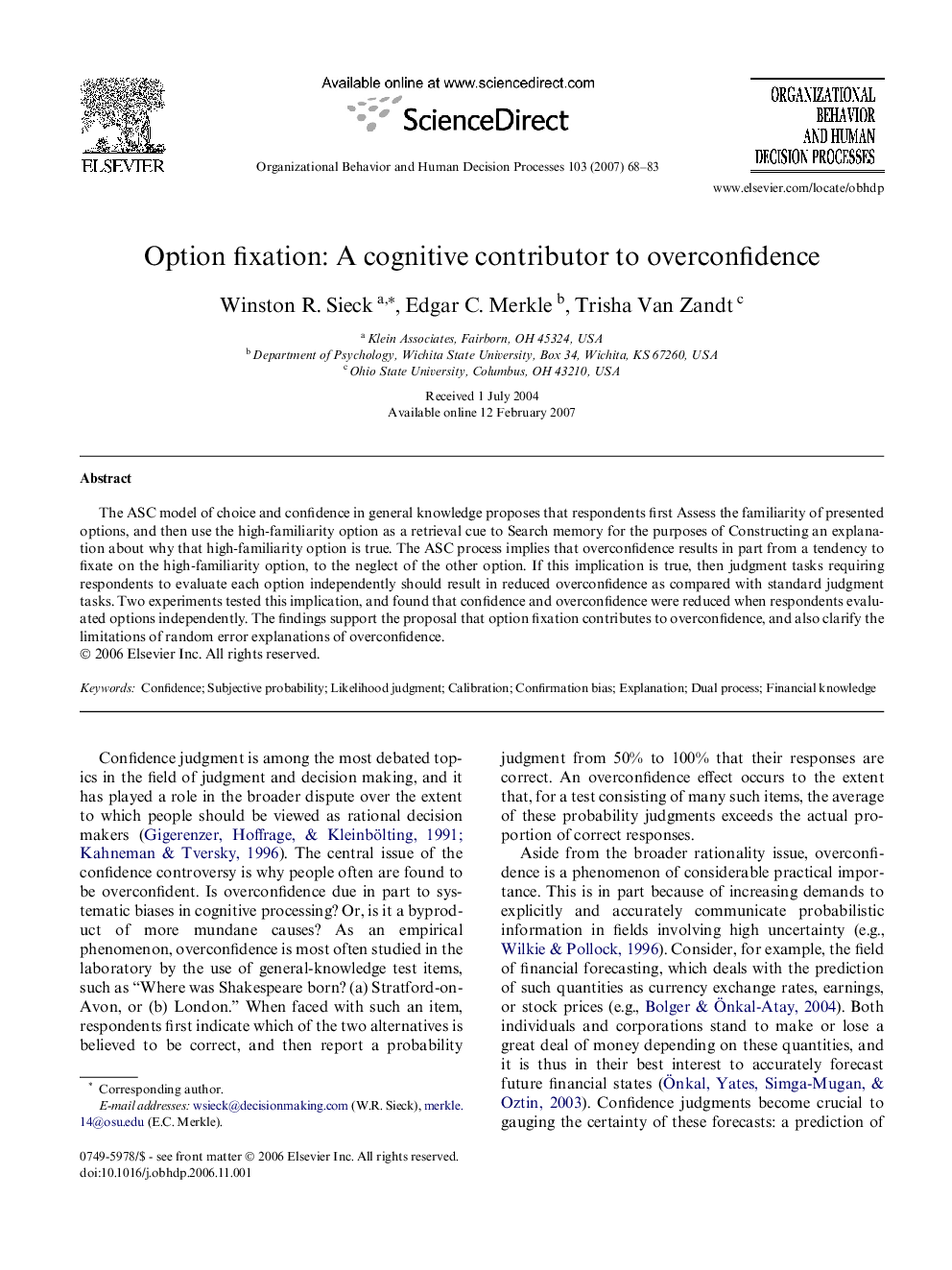| Article ID | Journal | Published Year | Pages | File Type |
|---|---|---|---|---|
| 888968 | Organizational Behavior and Human Decision Processes | 2007 | 16 Pages |
The ASC model of choice and confidence in general knowledge proposes that respondents first Assess the familiarity of presented options, and then use the high-familiarity option as a retrieval cue to Search memory for the purposes of Constructing an explanation about why that high-familiarity option is true. The ASC process implies that overconfidence results in part from a tendency to fixate on the high-familiarity option, to the neglect of the other option. If this implication is true, then judgment tasks requiring respondents to evaluate each option independently should result in reduced overconfidence as compared with standard judgment tasks. Two experiments tested this implication, and found that confidence and overconfidence were reduced when respondents evaluated options independently. The findings support the proposal that option fixation contributes to overconfidence, and also clarify the limitations of random error explanations of overconfidence.
